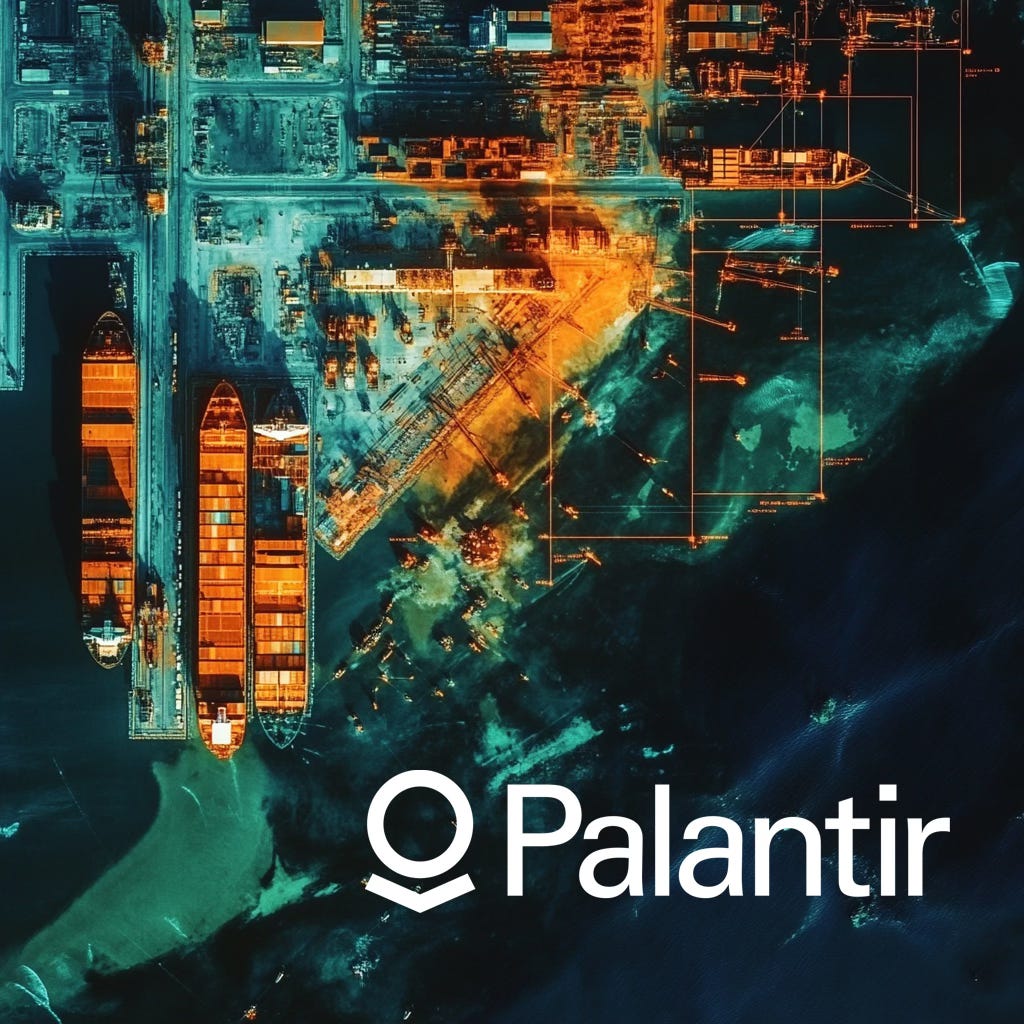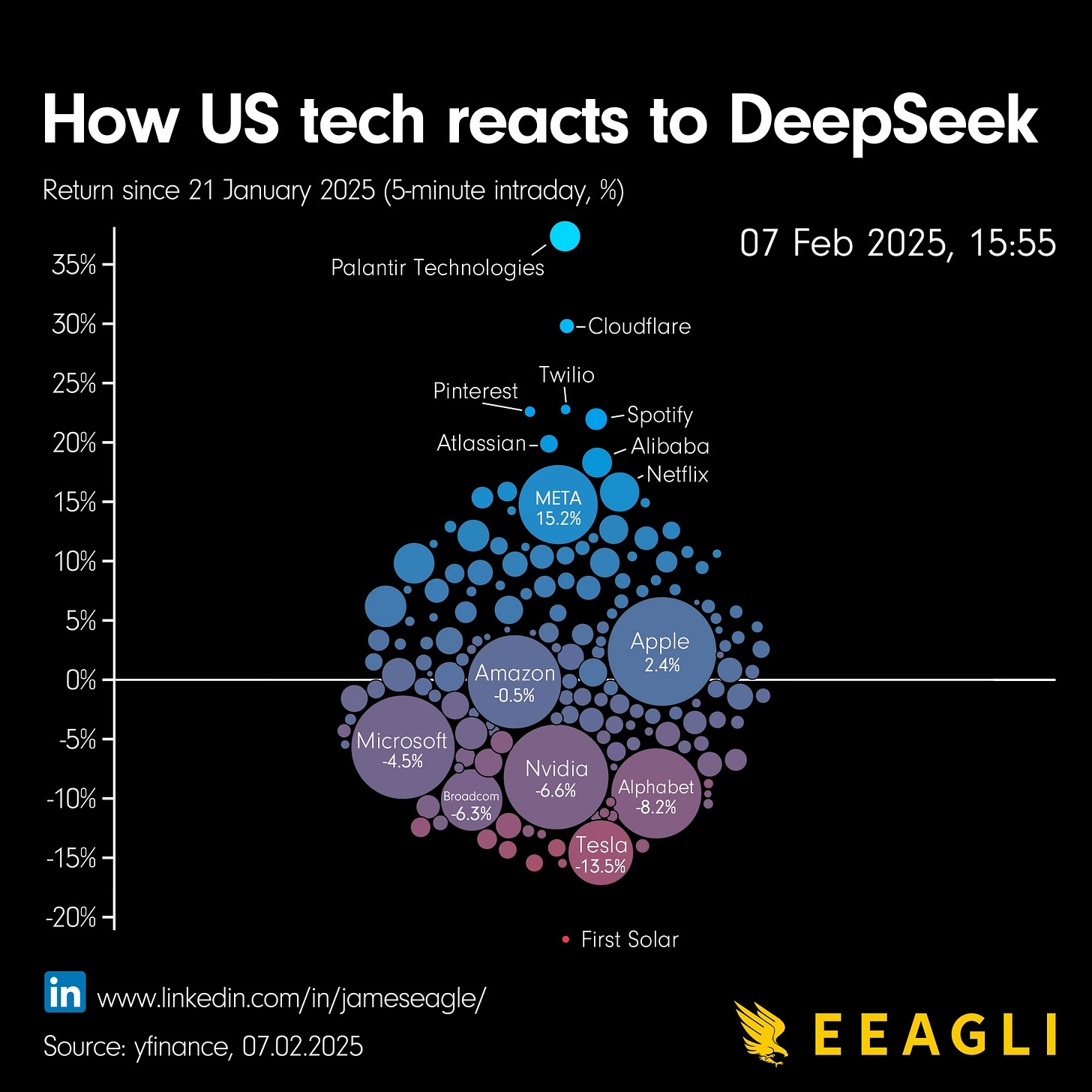In an unassuming, nondescript Palo Alto office, Palantir Technologies quietly crunched data for everyone from Wall Street traders to national security agencies. Founded in 2003 by entrepreneur Peter Thiel and a small cadre of engineers, the firm made its name by promising to unearth hidden threats and patterns in an age awash with information.
Its secretive contracts and powerful software have drawn praise for helping track down criminals and terrorists – but also sparked deep unease about privacy, surveillance and the boundaries of corporate influence over public life.
Palantir Technologies stands out as one of the most controversial companies in Silicon Valley. Unlike typical enterprise software companies, Palantir has its roots in intelligence and defense work, which has surrounded it with both fascination and concern. The company has cultivated an air of mystery while building powerful data analysis tools used by governments and corporations worldwide.
It has attracted passionate supporters among investors while drawing intense criticism from privacy advocates. Now, as Palantir aggressively expands into military AI applications, its influence extends far beyond its business performance, raising important questions about artificial intelligence, government surveillance and corporate power in the modern world.
Palantir and the secret cult of data
Palantir Technologies has cultivated an air of mystery since its founding in 2003. With initial funding from the CIA's venture capital arm In-Q-Tel, the company established itself as a specialised provider of data analysis software to intelligence agencies and military organisations worldwide. For years, Palantir operated discreetly, building its reputation among government agencies and law enforcement while staying largely unknown to the public.
The company's secretive nature, combined with the influence of co-founder Peter Thiel (a co-founder of PayPal), has created a distinctive presence in the technology sector.
This has led to a notably divided response among investors. In fact, Palantir has become one of the most polarising companies in tech, inspiring both fierce loyalty and strong scepticism. On investment forums and social media, devoted supporters (self-dubbed “Palantirians”) passionately believe in the company's transformative potential, while critics dismiss it as overvalued.
Palantir continues to maintain its exclusive image by rarely publicising its client list, with many customers preferring to keep their relationship with the company private. Rather than pursuing broad market appeal, Palantir focuses on partnerships with government agencies and major corporations for complex data analysis projects. This selective approach has reinforced its reputation for handling sensitive, high-stakes work.
The company's carefully maintained mystique has become one of its strongest assets, though some industry observers note that Palantir's reputation can sometimes overshadow its actual business performance. In an era when many tech companies opt for transparency and broad consumer appeal, Palantir's continued emphasis on discretion and its focus on powerful institutional clients sets it apart in the industry.
This is what makes its return profile so interesting. What drives this stock upwards is more than just AI hype. When Chinese startup DeepSeek announced the arrival of it new generative AI model to the shock of Silicon Valley, Palantir’s stock actually rallied strongly. This is exactly the kind of geopolitical risk that favours Palantir. China’s threat to emerge as an AI superpower has made Palantir’s arguably even more valuable, especially in the eyes of the US government.
The AI arms race where Palantir is at war (and peace)
If data is the new ammunition, Palantir has armed itself to the teeth. In recent years, the company has positioned itself as the go-to platform for AI-driven warfare and intelligence, unabashedly putting itself on the frontlines of a new arms race.
CEO Alex Karp has explicitly argued that there is already an AI arms race under way and that pausing development would only let adversaries leap ahead. This mentality – that winning in AI is a matter of national survival – permeates Palantir’s strategy and trajectory of its stock price.
Unlike more timid tech peers, Palantir doesn’t balk at military AI projects; on the contrary, it hungers for them. One vivid example is Palantir’s eager takeover of the Pentagon’s Project Maven, an initiative to use machine learning for analysing drone surveillance footage. When Google infamously walked away from Maven in 2018 amid employee protests (“don’t be evil” and the like), Palantir swooped in without hesitation.
Training AI to interpret battlefield video – even enabling autonomous targeting – was a line Google’s rank-and-file wouldn’t cross, but Palantir called it a patriotic duty. In fact, Thiel went so far as to label Google’s reluctance “treasonous”.
That episode cemented Palantir’s image as Big Tech’s dark knight – willing to do the controversial work others avoid. From advanced drone analytics to the Army’s TITAN battlefield network, Palantir is angling to be the indispensable AI contractor for Western militaries.
We see the real-world impact of this in Ukraine. Palantir’s technology has been described as “Ukraine’s AI secret weapon” on the digital battlefield. The company embedded itself early in the conflict, providing tools to fuse intelligence from drones, satellites and spies into usable targeting data. By Palantir’s own account, its platforms are now responsible for “most of the targeting in Ukraine,” digesting feeds from all sources to help pinpoint Russian assets. At least half a dozen Ukrainian agencies rely on Palantir’s AI-driven software for everything from battlefield intel to humanitarian tasks like tracking war crimes and resettling refugees.
In other words, a silicon-valley software firm is playing a pivotal role in a major European war – a striking illustration of how private tech has become a crucial lever of state power. This melding of Silicon Valley and the battlefield is exactly Palantir’s sweet spot. Its Gotham software (originally built for US spies) was designed for “intelligence and defence” uses by militaries and counter-terrorism analysts and now the company is rolling out new AI platforms explicitly for defence clients.
In an arms race where algorithms matter as much as F-35s, Palantir is hell-bent on becoming the West’s arsenal of democracy in code. All of this points to a broader truth: Palantir represents the convergence of tech and geopolitics. Its engineers don’t just write code – they sometimes deploy alongside soldiers to fine-tune the software in war zones.
The company likes to boast that its tools can turn ragged data into decision advantage within hours, not months. In practical terms, that could mean the difference between neutralising a terrorist threat versus missing it. Little wonder that Palantir speaks of its work in grand, almost civilisational terms. When Karp or Thiel talk about AI, it’s often with a quasi-missionary zeal about preserving Western values against digital authoritarianism. Whether one finds this earnest or overblown, there’s no denying Palantir’s outsized role in the AI race for national security. It is reshaping how wars are fought and how intelligence is gathered, for better or worse.
A stock unlike any other: valuation, vision and reality
Despite (or because of) its quasi-mythical status, Palantir as a stock is a perplexing creature. Traditional valuation models break down when confronted with this company.
Here is a firm that for years wasn’t consistently profitable, that derives the majority of its revenue from slow-moving government contracts and that in many ways operates more like a high-end consultancy than a scalable software business. Yet, its market value has soared to stratospheric heights, buoyed by believers.
At one point recently Palantir traded at roughly 20 times its annual revenue – the richest multiple in the entire cloud software sector – putting it ahead of darlings like CrowdStrike and Cloudflare in investors’ affections. By normal measures (growth rates, earnings, etc.), a 20x sales multiple looks wildly overpriced. So why are investors willing to pay such a premium?
The answer lies in Palantir’s unique narrative and the long-term vision baked into its share price. Bulls see Palantir not as it is today, but as what it could become – the dominant operating system for AI in both government and industry, a company of almost unmatchable strategic importance. In their eyes, that potential justifies a bit of insanity in the valuation.
As one commentator put it, either Palantir is overhyped, or investors are correctly pricing in “something about Palantir’s longer-term potential” that others are missing. Part of what makes Palantir’s stock hard to grok is that the company straddles two worlds. It’s often lumped in with enterprise software peers, but it behaves like a defence contractor. Roughly 55 percent of Palantir’s revenue still comes from government clients, a proportion unheard of for most tech IPOs.
Its early lifeblood was US intelligence and defence contracts and those ties remain deep, from the CIA and NSA to local police departments. At the same time, Palantir has been pushing aggressively into the private sector, trying to prove it’s not just living off Uncle Sam’s chequebook. Its Foundry platform now counts big corporate names (from banks to automakers) as clients, and commercial revenue has been growing faster than government revenue of late.
In effect, Palantir is attempting a high-wire act: maintaining its grip on government work (with all the stability and clout that provides) while becoming a go-to provider for industry as well. Few companies have attempted this dual identity – being a top vendor to the Pentagon and to Wall Street – and arguably none at Palantir’s scale. This gives rise to an unusual risk-reward profile. The government side offers steady, if unspectacular, growth and a barrier to entry (Palantir’s deep clearance-heavy relationships).
The commercial side is potentially a much larger market but one where Palantir must compete with more traditional software rivals on value, not just mystique.
Another atypical aspect is Palantir’s service-heavy business model. Critics long derided Palantir as a “glorified consultancy” rather than a true software product shop. Indeed, Palantir’s secret sauce has often been its practice of embedding “Forward Deployed Engineers” with clients – sending its whiz-kids on site to tailor systems and solve problems hands-on. This is not a cheap, cookie-cutter SaaS model; it’s labour-intensive and elitist. Palantir basically hand-holds its customers through data transformation, which led many to question its scalability.
Normally, Wall Street frowns on such services-heavy tech firms. Yet Palantir has slowly proved that once its software is deeply woven into a client’s operations, it becomes indispensable and over time, the margins can improve. In fact, Palantir recently surprised analysts by turning profitable and showing improving free cash flow, suggesting its model might actually work at scale.
If you zoom out, what makes Palantir’s stock unique is that investors are valuing a philosophy and a strategic positioning as much as financial metrics. It’s a bet on the idea that “data is the new oil” and Palantir is the refinery for the most security-conscious customers. This story, more than any quarterly report, is what keeps the stock in a league of its own. Palantir’s share price has at times swung wildly with sentiment – soaring on AI hype one month, sliding on earnings doubts the next. But through it all, the true believers have held firm to the long game.
Picking sides in a divided world
Palantir’s rise has not been without drama or dissent. In fact, few tech companies encapsulate the divisions of the digital age quite like Palantir does. Its leadership and ethos exude a kind of elitist contrarianism – a Peter Thiel-flavoured disdain for the Silicon Valley herd. Palantir’s founders have “chosen sides,” in Alex Karp’s own words, unapologetically aligning the company with US military, intelligence, and law enforcement agencies.
In its IPO prospectus, Palantir went out of its way to blast the “engineering elite of Silicon Valley” for shunning defence work and to declare itself a patriotic outlier. It even tied its identity to the Trump-era vision of staunch national security, an almost unheard-of stance for a high-profile tech firm at the time. This maverick posture flows from the top: Peter Thiel (Palantir’s co-founder and earliest backer) is an avowed libertarian-ish iconoclast who isn’t afraid to wade into political controversy.
With Thiel’s influence and Karp’s philosophical bent (he’s a PhD who quotes Heraclitus and champions “Western values”), Palantir often comes across as deliberately aloof from the rest of Big Tech’s culture. It wears its patriotic, pro-military stance as a badge of honour, knowing full well that such a stance will alienate many in liberal tech circles.
To its detractors, the company is nothing less than a merchant of surveillance and repression. They point to Palantir’s contracts with agencies like ICE (Immigration and Customs Enforcement), where Palantir software has been used in efforts to track undocumented immigrants, activity denounced by human rights advocates.
The backlash has at times hit directly at Palantir’s brand: for example, the famed Grace Hopper women-in-computing conference dropped Palantir as a sponsor in 2019, accusing the firm of providing “direct technology assistance” to human rights abuses at the US border. Palantir’s work with police departments on predictive policing and with the military on autonomous weaponry (like the AI drone targeting of Project Maven) likewise raises red flags for civil libertarians.
The company has practically become a bogeyman for privacy advocates, who see its platforms as engines of unchecked government snooping. Notably, in places as far afield as Denmark, mere proposals to use Palantir for law enforcement have ignited fierce debates about state surveillance and data rights.
Internally too, Palantir hasn’t been immune to ethical conflict. There have been reports of employee unease over certain contracts. Yet unlike Google, Palantir’s leadership has made it plain that if you’re not comfortable building tools for defence or homeland security, this probably isn’t the company for you.
Karp has bluntly stated that Palantir is not politically neutral; it is in the fight for the West, and employees and investors should know that upfront. This clarity of purpose is bracing to some and chilling to others. It feeds the narrative of Palantir as an almost ideological enterprise, one that deliberately blurs the line between corporate mission and national mission. Such entanglement with government power is what makes Palantir so significant and yet so divisive. We are used to tech companies that at least pay lip service to neutrality or “changing the world” in a feel-good way.
Palantir instead talks about “saving the world” in a very specific, security-first way. For supporters, this is refreshingly bold: here is a tech firm willing to take a stand and defend liberal democracy with code and algorithms. For critics, Palantir embodies the dark side of Big Tech – an elitist, secretive cabal that sells Orwellian tools to state actors and erodes privacy in the shadows.
The big picture
Step back from the day-to-day controversies and Palantir’s trajectory tells a broader story about the world we’re hurtling into. This company, in all its paradoxes, sits at the intersection of technology, power and society.
In Palantir, we see the promise and peril of AI-driven data analytics taken to their extremes. Its success signals that mass data surveillance and algorithmic decision-making have become not just accepted, but essential tools of modern governance and commerce.
Two decades ago, the idea of intelligence agencies leaning on a private Silicon Valley firm for their most sensitive analyses might have raised eyebrows. Today, Palantir is a de facto extension of the security establishment – a testament to how much the public sector now relies on private tech to gain an edge. This blurring of lines between government and a for-profit company exemplifies what scholar Shoshana Zuboff calls surveillance capitalism, albeit with a nationalist twist.
Palantir doesn’t harvest your clicks to sell adverts; it builds systems that harvest criminals or terrorists from oceans of data. The currency is not attention but information dominance.We should care about Palantir because it foreshadows the future of AI and power. As AI continues to advance, questions of who controls the algorithms and for what ends will only get more urgent.
Palantir represents one vision: AI as a force multiplier for state power, wielded in the shadows to keep a brittle peace. It stands as a counterpoint to the consumer-facing AI of the Big Tech giants – less about chatbots and more about clandestine ops.
This is AI with its sleeves rolled up, doing the dirty work of war, policing and intelligence. There’s an uncomfortable truth in Palantir’s rise: someone was bound to occupy this space. In a world where bad actors use technology mercilessly, governments feel they must do the same, and they will turn to whoever can provide that capability. Palantir’s motto of sorts – “saving the Shire” – hints at this vigilantism: the idea that in order to protect our way of life, we might need all-seeing digital palantirs scanning for threats. Whether that makes you sleep better at night or sends a chill down your spine is a personal call.
Importantly, Palantir also forces a conversation about oversight and values. Its tools concentrate a staggering amount of power in the hands of those who use them. When disparate databases – financial records, social media, CCTV feeds, gun licenses, you name it – are fused into one interface and probed by AI, the result is near-omniscience over a population’s activities.
Who watches the watchers in that scenario? Palantir insists it merely provides platforms and that its clients bear responsibility for how they’re used, but as its influence grows, so will calls for accountability. We’re seeing just the tip of that iceberg now, with civil liberty groups keeping a wary eye on Palantir-powered projects.
The company’s very existence raises big ethical questions: How much surveillance is too much in a democracy? Can we harness AI for security without crushing privacy and dissent? Palantir, by its nature, sits in the grey zone of those dilemmas. In the end, beyond the hype and hatred, Palantir deserves attention because it encapsulates the spirit of our age – an age of big data and big dilemmas.
It’s a company that challenges us to think hard about what we value: innovation, security, liberty, transparency? Palantir’s story has elements of a cautionary tale and a heroic saga, depending on your vantage point. Are they the valiant defenders using high-tech means to guard the gates? Or are they unwitting architects of a surveillance state? Perhaps a bit of both. One thing’s for certain: Palantir is not just another stock, and its narrative is far from dry.
It’s a lightning rod for debate about where AI and society are headed. In a very real sense, Palantir matters because the future it is building touches us all – whether we realise it or not. And that makes this secretive, polarising, and utterly fascinating company impossible to ignore.










Thank you for this article - thought provoking as always! I also invested in the company because of their innovative technology. However, I divested my shares April 2024 due to ethical concerns - specifically the attacks on hospitals in Gaza. I contacted their investor relations department multiple times for clarification of articles claiming their involvement but was just ignored. No matter how great the tech - Palantir's refusal to respond spoke volumes. Is this the future of Big Tech dominance - worrying if so.
So is it a buy ? 😉